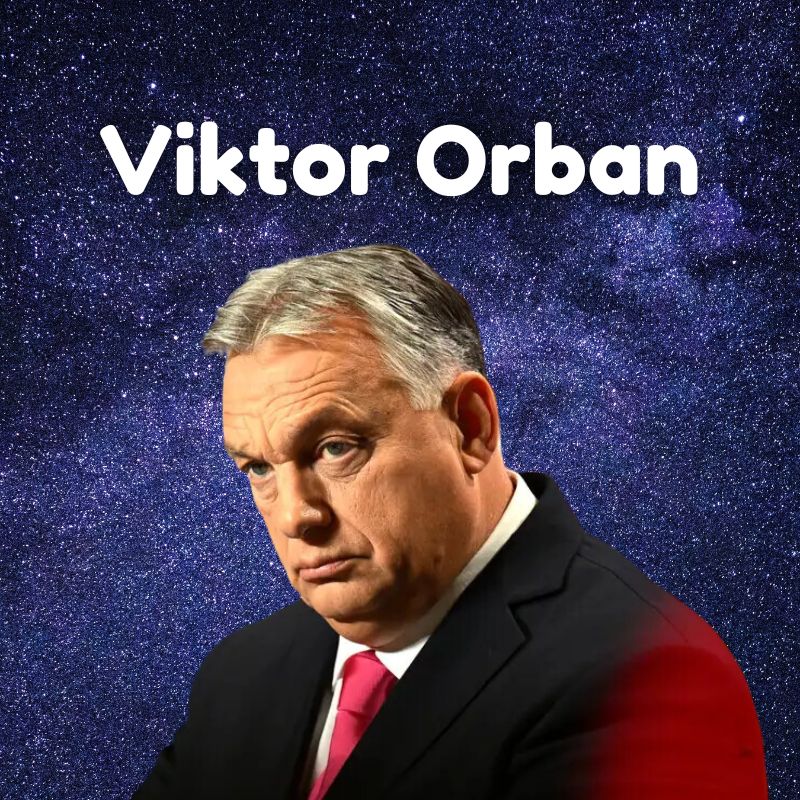
iktor Orbán: Hungary’s Prime Minister Navigates Domestic Challenges and International Controversies
September 11, 2024
Budapest — Viktor Orbán, Hungary’s Prime Minister and a central figure in European politics, has been making headlines recently with a series of significant developments both within Hungary and on the international stage. As he continues to lead the nation through a period of complex domestic and global issues, Orbán’s actions and policies are drawing widespread attention and scrutiny.
1. New Domestic Economic Reforms
In a move that has sparked considerable debate, Orbán’s government has introduced a new set of economic reforms aimed at addressing Hungary’s growing inflation rates and economic stagnation. The reforms, which include tax incentives for small businesses and increased subsidies for agricultural sectors, are designed to stimulate economic growth and reduce the cost of living for ordinary Hungarians.
Orbán has framed these reforms as necessary measures to counteract the adverse effects of global economic uncertainty and to bolster Hungary’s resilience in a challenging economic environment. Critics, however, argue that the measures may not be sufficient to address deeper structural issues within the economy and that they could potentially exacerbate inequalities.
2. Controversial Stance on European Union Policies
Orbán’s relationship with the European Union remains tense, particularly following his government’s recent pushback against EU policies related to migration and environmental regulations. Hungary has been at odds with Brussels over several key issues, including the EU’s Green Deal and migration quotas.
In a recent speech, Orbán reiterated his position against what he describes as “overreaching” EU regulations that he claims threaten Hungary’s sovereignty and economic interests. His comments have once again put him at odds with other EU leaders, who view his stance as undermining collective efforts to address global challenges.
3. The “Cultural Sovereignty” Initiative
Orbán has launched a new initiative under the banner of “Cultural Sovereignty,” aimed at promoting Hungarian culture and values in the face of what he perceives as foreign cultural influences. This initiative includes increased funding for Hungarian arts and media, as well as new regulations to ensure that Hungarian cultural content receives priority in media and educational institutions.
Supporters argue that this initiative is a necessary step to preserve national identity and heritage. Opponents, however, claim that it may be used to stifle dissenting voices and suppress diversity of thought. The initiative has sparked a broader debate about the balance between national identity and global cultural integration.
4. Diplomatic Tensions and International Relations
On the international front, Orbán’s recent diplomatic activities have been marked by both strategic alliances and contentious encounters. His government has sought closer ties with non-EU countries, including Russia and China, in an effort to diversify Hungary’s economic partnerships and secure investments in key infrastructure projects.
This approach has been met with concern from Western allies, particularly in light of ongoing geopolitical tensions. Critics argue that strengthening ties with these countries could compromise Hungary’s position within the EU and affect its relations with NATO partners. Orbán, however, has defended his strategy as a pragmatic response to the shifting global landscape.
5. Domestic Political Landscape and Upcoming Elections
As Hungary approaches its next parliamentary elections, Orbán’s political fortunes are under close scrutiny. Despite facing criticism and opposition from various quarters, his party, Fidesz, remains a dominant force in Hungarian politics. Orbán’s ability to navigate economic challenges, EU tensions, and international diplomacy will likely play a critical role in shaping the election outcome.
Recent opinion polls indicate a mixed response from the electorate, with some praising his leadership and others expressing dissatisfaction with his policies. The upcoming elections are expected to be highly competitive, with Orbán’s leadership style and policy decisions at the forefront of the national debate.
6. Human Rights and Media Freedom Concerns
Human rights organizations and media freedom advocates have raised concerns about the state of democracy in Hungary under Orbán’s rule. Reports of increased government control over media outlets and judiciary independence have drawn criticism from both domestic and international observers. Orbán’s government has been accused of undermining democratic institutions and curbing dissent, leading to calls for greater transparency and accountability.
Orbán has dismissed these allegations as politically motivated attacks, asserting that his administration is committed to upholding democratic values while prioritizing national interests.
As Viktor Orbán continues to navigate a complex and evolving political landscape, his decisions and policies remain a focal point of both national and international discourse. With Hungary facing a range of economic, political, and social challenges, Orbán’s leadership will undoubtedly be a significant factor in shaping the country’s future direction.
